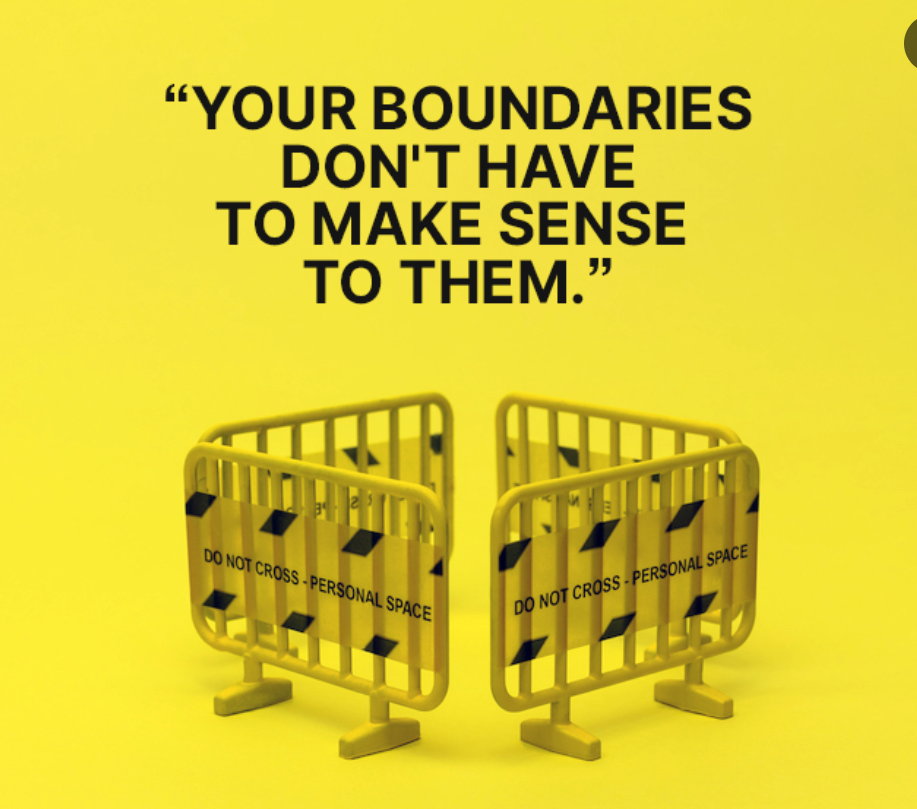
Marriage/Couple Counselling
Love, a cornerstone of human experience, can both elevate us to joy and plunge us into despair. When relationships falter, familiar patterns of conflict and disconnection emerge, leaving couples feeling lost and adrift. This introduction explores the telltale signs that a relationship is in need of professional guidance, offering a path towards renewed connection and understanding..

Sex Addiction
The concept of sex addiction often sparks debate, but for millions, it's a painful reality marked by destructive behaviors and deep shame. This introduction addresses the complexities of sex addiction, acknowledging its existence and the hope for recovery, particularly in the context of our digitally driven world.

Life Transitions
Life's inevitable transitions, both joyful and difficult, can overwhelm us. Yet, with support, we can navigate these changes, build resilience, and find balance, transforming challenges into opportunities for growth..

Marriage
Couple and Counselling
Loving relationships are one of the greatest sources of happiness and meaning for human beings, yet also the cause of lasting sadness and regret. When love relationships enter a state of decline, feelings of anger, hurt, and resentment move in. Wounds fester. Couples turn away from each other, and a sense of “we” begins to turn into “me”.
Is there a big issue - such as money, sex, infidelity, in-laws or children—that just won’t go away or that you cannot find a way to get your partner to respect or understand your viewpoint. Are the two of you busy leading separate lives? Is your relationship feeling stale and it feels like two ships passing in the night? People often ask how a couple can tell if they would benefit from relationship therapy, where a therapist can guide you through the issues and get you on the path to more positive relationship.
Signs that it is a favorable time to attend relationship counselling today include:
I believe each of us deserves to live a more joyful, happy, and beautiful life that can be part of a healthy married/couple relationship. I work to create an atmosphere where couples can come together in respect and safety to work through their differences.
To be fully seen by somebody, then, and be loved anyhow–this is a human offering that can border on miraculous.”
— Elizabeth Gilbert
sex addiction
Sex Addiction is Real
Sex addiction is real and it can be successfully treated. The hopelessness, self loathing and harmful behaviours can end.
What is sex addiction?
Sex addiction is a term that encompasses a range of problems and difficulties associated with a range of sexual behaviours. Those problems may be mild or severe, they may have existed for many years with no apparent cause or they may have been triggered by a particular event and be a relatively recent problem. Or it may be a problem that crops up in someone’s life only occasionally.
The impact of the internet
The world wide web has made sex available and accessible to all, and accessible within relative anonymity, hence bypassing the usual social inhibitors.

Sex addiction, or compulsive sexual behavior, is a complex condition characterized by persistent and escalating patterns of sexual thoughts, urges, or behaviors that individuals find difficult to control, despite experiencing negative consequences. These behaviors can include excessive use of pornography, compulsive masturbation, frequent encounters with sex workers, or engaging in risky sexual activities. Unlike healthy sexual expression, sex addiction often leads to significant distress, impacting relationships, work, and overall well-being. Individuals struggling with this condition may experience feelings of shame, guilt, and isolation, as their lives become increasingly dominated by the pursuit of sexual gratification.
The underlying causes of sex addiction are multifaceted and can include biological, psychological, and social factors. Trauma, emotional dysregulation, and attachment issues can contribute to the development of compulsive sexual behaviors as a coping mechanism. Furthermore, societal influences, such as the hypersexualization of media and easy access to online pornography, can exacerbate the problem. It's important to recognize that sex addiction is not a moral failing, but rather a mental health concern that requires professional intervention.
Therapy can provide a safe and supportive environment for individuals to explore the root causes of their behavior, develop healthier coping strategies, and rebuild their lives. Through approaches like cognitive-behavioral therapy (CBT), acceptance and commitment therapy (ACT), and schema therapy, clients can learn to manage triggers, improve emotional regulation, and establish healthy boundaries. Addressing underlying issues such as trauma, anxiety, or depression is crucial for long-term recovery and fostering healthy relationships.
"As millions of sufferers would testify, sex addiction definitely does exist, but like many conditions it is complex and not easily defined. There are some ‘classic’ cases that easily fit diagnostic criteria but others that do not. It’s best to view sex addiction as a term that encompasses a range of problems and difficulties associated with a range of sexual behaviours. Those problems may be mild or severe, they may have existed for many years with no apparent cause or they may have been triggered by a particular event and be a relatively recent problem. Or it may be a problem that crops up in someone’s life only occasionally. Sex addiction has many guises, but there are common denominators.
One argument that is proffered against sex addiction’s existence is that it seems to have appeared on the social scene so recently, but sex has obviously been available since the dawn of time. “If sex was ‘addictive’ how come it’s only happened so recently?” ask some. The answer to this is simple: the internet. The world wide web has made sex available and accessible to all, and accessible within relative anonymity, hence bypassing the usual social inhibitors."
"If crack cocaine was privately and freely available on every street corner, I’m sure the growth in coke addiction would soon hit the headlines."
"At no other time in history has it been so easy to become sexually addicted. "
Paula Hall (2013), UnderStanding and Treating Sex Addiction, A comprehensive Guide for people who struggle with sex addiction and those who want help. p6
Counselling for Spouses/Partners of Addicts

Living with an addict is perhaps one of the most difficult relationship issues to deal with. The multitude of emotions that a person experiences can include fear, anger, sorrow, loathing, and uncertainity. There can also be self blame and you start to question yourself as well as the whole of the relationship.
The first thing you need to know is that you are not to blame. The second thing to know is that you can come through this experience and be empowered and retain your sanity!
Whatever you are going through right now, know that there is help and support available to walk with you on this journey as you find your way to a place where you are comfortable with the decisions you make in relation to it.
life transitions
We all experience many transitions in our lives. We move, engage in educational activities, enter or exit couplehood, become parents, take on a new job or lose a job and people move in and out of our lives. Many of these changes or transitions are positive and cause for celebration. They can also bring new stresses and can sometimes lead to feeling overwhelmed. Other changes are not so welcome and can cause us to feel lost and sometimes a bit helpless.
Navigating Life’s Transitions
Life is a constant flow of change, a series of transitions that shape our experiences and define our journey. From the monumental shifts like career changes and relationship milestones to the more subtle adjustments of daily life, we are perpetually adapting. While many of these transitions are joyous, marking moments of growth and achievement, they also introduce a unique set of challenges. The excitement of a new job can be accompanied by the stress of navigating a new workplace culture, and the joy of parenthood can bring with it sleepless nights and a sense of overwhelming responsibility.
Furthermore, life’s inevitable losses, whether the end of a relationship, the loss of a loved one, or unexpected setbacks, can leave us feeling adrift, questioning our sense of purpose and direction. These unwelcome changes can disrupt our equilibrium, leaving us feeling vulnerable and uncertain. The accumulation of these stresses, both big and small, can lead to feelings of being overwhelmed, lost, and even helpless.
However, it’s crucial to remember that these feelings are not permanent. With the right support and guidance, you can navigate these challenging periods and rediscover a sense of balance and clarity. Whether it’s through therapy, counseling, support groups, or simply leaning on trusted friends and family, there are resources available to help you process your emotions, develop coping strategies, and rebuild your resilience. By acknowledging the impact of these transitions and seeking support, you can transform periods of uncertainty into opportunities for growth and self-discovery, ultimately restoring harmony to your perspective and your life.
With some guidance and support you can work through these challenging periods to restore balance to your perspective and your life.

boundaries

There are healthy boundaries and there are unhealthy boundaries.
Healthy boundaries enhance a person’s life and happiness and their relationships. When boundaries are limited or absent, it effects the well-being of the individual and can result in chaos in their lives.
* Boundaries issues can be found in both our personal and professional lives.
* Some examples of unhealthy boundares are:
* The inabilty to say no
* Overly flexible to the point they are no longer respecting their own needs or values
* Interpret somebody telling them no as a rejection or a comment on their worth whileness and their person.
* Feedback that most would consider constructive criticism is personalized as a statement on their competence.
* Reacts overly strongly to other peoples opinions, their emotions and their thoughts
* Unopen to change and falls back to "this is how we have always done it"
Working with a skilled therapist you can learn to set boundaires that respects yourself and others.
My Story
I am a registered Social Worker and I have been working in the field of mental health, addictions and counselling for close to 20 years.
I specialize in helping people identify the issues that are causing them distress and work with them to achieve their personal goals. I take a persoanlized approach to working with clients to find the strategies and therapies that will work best for them and their situation.
I have completed specialized training in Cybersex Sex and Pornography addiction as I feel this is an under recognized and under-treated area of addictions.
I am a reliable and experienced Marriage Counselor, who specializes in working with individuals and couples who are ready to be empowered and make positive life changes.

Grow with us
Welcome Greg
New Journey Counselling is very pleased to welcome Master’s of Psychology student Greg Allt.
Greg graduated from the University of Waterloo with his BA and has been successful in a career in Information Technology. Greg is currently enrolled in the Master of Science (Psychology) at California Coast University where he is maintaining a 4.0 GPA.

He is practicing under the supervision of College Certified Psychotherapists trained in coaching and supervision for candidates pursuing a career in Psychotherapy who are working on accumulating the required hours before becoming fully qualified Psychotherapists. His supervisor is independent of the New Journey Counselling clinic. He will be working under this supervision while completing his program. As a student, his services are offered at a reduced rate.
Looking towards a post retirement career he is leveraging his volunteer experience and past work as an Addictions Recovery Specialist working with those suffering behavioral and process addictions with a goal to attaining the Psychotherapist designation.
Greg’s areas of specialization include addictions, particularly process addictions such as Sex and Pornography, Gambling, Shopping, Gaming and digital/device usage. He also works with those affected by them (Family and friends).
With over 8 years experience working with people who suffer unhelpful processes and behaviors, he has certificates from Emory University, University of Virginia and Simon Fraser University in addictions and the brain, as well as Motivational Enhancement techniques to assist those suffering addiction.
His clients find him helpful because of his thoughtful cognitive restructuring approach where he treats the addiction, the root causes as well as the triggers that lead to slips and relapse as well as the shame. There is no one single cause of addiction, no two people are the same and he believes there is no one approach that will work for all people. He uses a mix of techniques including Motivational Interviewing and Motivational Enhancement Therapy, Community Reinforcement and training (CRAFT), TFS, Mindfulness, and Polyvagal among others. He addresses his clients from an intellectual as well as emotional perspective.
He believes recovery from impulsive behaviors cannot be accomplished alone but requires support and assistance as well as trusted and safe people to confide in.
If you are interested in booking an appointment with Greg, he can be contacted using the contact form on the contact page.:
You lie awake at night thinking your relationship may end soon. You’ve spent too much time again online surfing porn or playing poker or video games wondering if there is any hope for you. You feel guilt because you can’t control your anger or stress because of a difficult boss. Your problems are causing you pain and you aren’t sure there is a solution. You feel shame because of your actions and how you have been acting and treating other people and this stops you from calling or seeking help.
In my experience as an addiction recovery professional, I have come to recognize, when people reach out to me, they are often in crisis. Due to compulsive activities such as gambling, shopping, adult chat sites, porn, strip clubs or protitutes, their job may be in jeopardy, their marriage may be in tatters or they may be recovering from a separation. Their family and friends may have estranged them. They are afflicted with behaviors they can’t explain. When asked by their partner or spouse "why did you do it" they can’t answer.
Although compulsive behavior is not specifically classified as an addiction, it can lead to real problems in a person’s life, activities, and relationships. These behaviors can also cause significant distress and are difficult to change, even if the person wants to stop.
Often, people with behavioral addictions eventually grow tired of how their behavior affects their lives and the lives of those around them. They may also suffer losses that seem too great to bear, such as financial problems or relationship problems. What once seemed exciting and rewarding becomes an embarrassing burden.
Sex and porn addiction and other compulsive activity such as work addiction, gambling, exercise, Internet and digital addiction, Love, tattoo, Video gaming addiction are the manifestation of anxiety, depression, self esteem and other issues.
My work involves a collaborative, holistic approach where we exam the underlying causes, plan strategies cope and develop short and long term strategies. New habits and ways of thinking can be developed.
It can be challenging to acknowledge that you have a problem, let alone to someone else. It can be even more challenging if friends and family don’t fully understand the issue or don’t take it seriously.
If you aren’t ready to seek help, knowing the stages of change will enable you to treat yourself with more compassion. Consider concentrating on making sure that your behavior doesn’t hurt you or those nearby if you feel like you don’t want to get help right now to overcome your behavioral addiction. If you are curious or know that you are ready for help call me or connected via email.
* * * * *
A limited number of sliding scale and probono appointments may be available. Please inquire.
500 Willow Road Guelph in the medical centre in the Big Bear Plaza
Fully wheelchair accessible and plenty of free parking. Located on a bus line and convenient to the Hanlon roadway as well as 15 minute drive from Eastern Kitchener.
Schedule a Session Want to hear more about how I can transform your life? Contact me today to schedule a session.